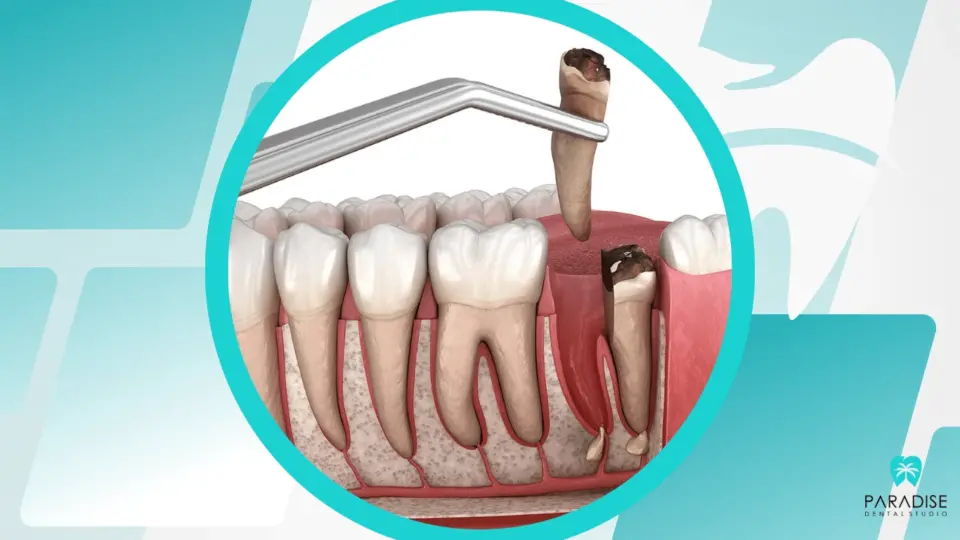Did you know your general dentist might hold the key to better overall health through their understanding of nutrition? While dentists are often associated with teeth cleanings and cavity repairs, their expertise extends far beyond the dental chair. The food choices you make directly impact not just your teeth but your entire body.
Dentists understand how essential nutrients like calcium, vitamin D, and phosphorus strengthen your enamel and how sugar and acidic foods can silently erode your smile. They also recognize the connections between poor oral health and systemic conditions like heart disease and diabetes.
By addressing your dietary habits, your dentist can help you create a healthier foundation for both your teeth and your overall well-being. Dive into what your dentist knows about nutrition and discover how small changes to your eating habits can make a big difference to your health.
How does nutrition impact oral health according to general dentists?
According to general dentists, nutrition significantly impacts oral health, influencing everything from tooth structure to gum health. Here’s how proper nutrition plays a role in maintaining a healthy mouth:
- Prevents Tooth Decay: A diet rich in calcium and vitamin D supports tooth enamel, helping to prevent cavities. Dairy products, leafy greens, and fortified foods are excellent sources of these nutrients.
- Supports Gum Health: Vitamin C is essential for healthy gums. It helps collagen formation and prevents gum disease by reducing inflammation and promoting healing. Citrus fruits, berries, and leafy vegetables are great sources.
- Reduces Plaque and Bacteria: Crunchy, high-fiber foods like apples and carrots stimulate saliva production, which helps neutralize acids in the mouth and wash away food particles, reducing plaque buildup.
- Helps Strengthen Teeth: Phosphorus, found in eggs, fish, and meat, works with calcium to strengthen teeth and bone structure, ensuring long-term dental health.
- Avoids Acidic and Sugary Foods: Frequent consumption of sugary and acidic foods can weaken tooth enamel and promote cavities. General dentists advise limiting sugary snacks and drinks to protect oral health.
- Boosts Immune Function: A healthy diet supports overall immune function, helping the body fight off infections, including those that affect the mouth, such as gum disease.
Maintaining a balanced diet is essential for overall health and keeping teeth and gums in optimal condition.
What essential nutrients do general dentists recommend for healthy teeth and gums?
General dentists recommend several essential nutrients to maintain healthy teeth and gums. These nutrients help protect teeth from decay, support gum health, and promote oral hygiene. Key nutrients include:
- Calcium: Essential for strengthening tooth enamel and bone structure. Sources include dairy products (milk, yogurt, cheese), leafy greens (kale, spinach), and fortified plant-based milk.
- Vitamin D: Aids calcium absorption and bone health. It is found in fatty fish (salmon, mackerel), fortified foods (milk, cereals), and through sun exposure.
- Vitamin C: Crucial for gum health, as it helps prevent gum disease by reducing inflammation and promoting collagen production. Found in citrus fruits (oranges, grapefruits), strawberries, bell peppers, and broccoli.
- Phosphorus: Works alongside calcium to form strong teeth and bones. It is found in meat, poultry, fish, eggs, nuts, and legumes.
- Fluoride: Protects against cavities by strengthening tooth enamel and making it more resistant to acid attacks. It is often found in drinking water, toothpaste, and some foods.
- Vitamin A: Helps maintain the mucous membranes in the mouth and supports healthy gums. Sources include carrots, sweet potatoes, and dark leafy greens.
- Magnesium: Supports healthy bone structure and helps with calcium absorption. It is found in nuts, seeds, whole grains, and leafy vegetables.
Incorporating these nutrients into a balanced diet supports long-term oral health and helps prevent dental problems.
Can a general dentist help identify nutrition-related dental issues?
Yes, a general dentist can play a key role in identifying nutrition-related dental issues, as diet directly impacts oral health. Dentists are trained to recognize the signs of poor nutrition that can lead to dental problems. Here’s how they can help:
- Tooth Decay and Cavities: Dentists can spot signs of enamel erosion, often caused by excessive sugar or acidic food intake. They can advise patients on reducing sugary snacks and drinks to prevent further damage.
- Gum Disease: Gum issues such as gingivitis or periodontitis can be linked to a lack of essential nutrients like vitamin C. A dentist can identify these conditions early and recommend dietary changes to improve gum health.
- Dry Mouth (Xerostomia): Dry mouth can be caused by dehydration, or a lack of certain nutrients like vitamin A. Dentists can identify this condition and suggest proper hydration or dietary adjustments.
- Enamel Erosion: Chronic exposure to acidic foods (like citrus fruits and sodas) can weaken tooth enamel. Dentists can detect this early and educate patients on limiting acidic foods to protect enamel.
- Weak Teeth and Bones: Dentists can observe signs of weak teeth, such as fractures or sensitivity, which could result from calcium or vitamin D deficiencies. They can recommend dietary changes to strengthen teeth and bones.
By understanding the connection between nutrition and oral health, general dentists can offer valuable advice and early interventions to improve patients’ overall health.
How do general dentists explain the link between diet and dental health?
General dentists often explain the link between diet and dental health by highlighting how certain foods can support or harm the teeth and gums. Here are the key points they emphasize:
- Nutrient Support: Dentists stress that a balanced diet rich in vitamins and minerals is essential for maintaining strong teeth and healthy gums. Nutrients like calcium, vitamin D, and phosphorus are vital for tooth enamel and bone health.
- Cavity Formation: Sugary and starchy foods contribute to the growth of harmful bacteria in the mouth, which can produce acids that erode tooth enamel. Dentists explain that frequent consumption of sugary snacks and drinks increases the risk of cavities.
- Acidic Foods: Citrus fruits, soda, and certain fruit juices can weaken tooth enamel over time. Dentists warn against frequent exposure to acidic foods, as they can make teeth more vulnerable to decay and sensitivity.
- Saliva Production: A healthy diet helps maintain proper saliva production, essential for neutralizing acids in the mouth and washing away food particles. Dehydration or a lack of certain nutrients can lead to dry mouth, increasing the risk of tooth decay and gum disease.
- Gum Health: Dentists explain that nutrients like vitamin C play a key role in preventing gum disease by supporting gum tissue and promoting healing. Poor nutrition can lead to inflammation, bleeding, and gum infections.
Understanding these connections allows patients to make informed dietary choices that improve oral and overall health.
Unlock the Power of Nutrition for a Healthier Smile!
At Paradise Dental Studio in Fort Lauderdale, we’re passionate about helping you achieve optimal oral health—and nutrition plays a crucial role. A well-balanced diet is key to preventing issues like cavities, gum disease, and tooth decay. Incorporating essential nutrients such as calcium, vitamin D, and vitamin C can fortify your teeth and gums, while steering clear of harmful foods can protect your enamel from erosion.
Our expert team is here to offer personalized advice, ensuring you understand how your dietary choices directly impact your oral health. Take the first step toward a brighter, healthier smile—contact us for a consultation today!

